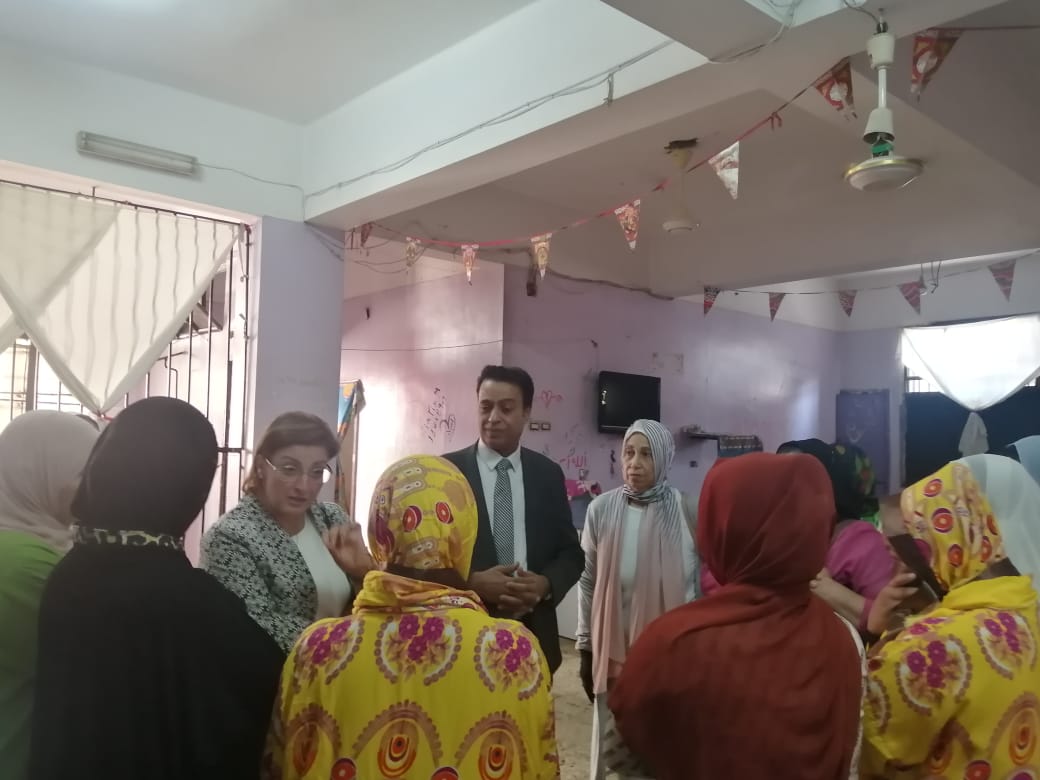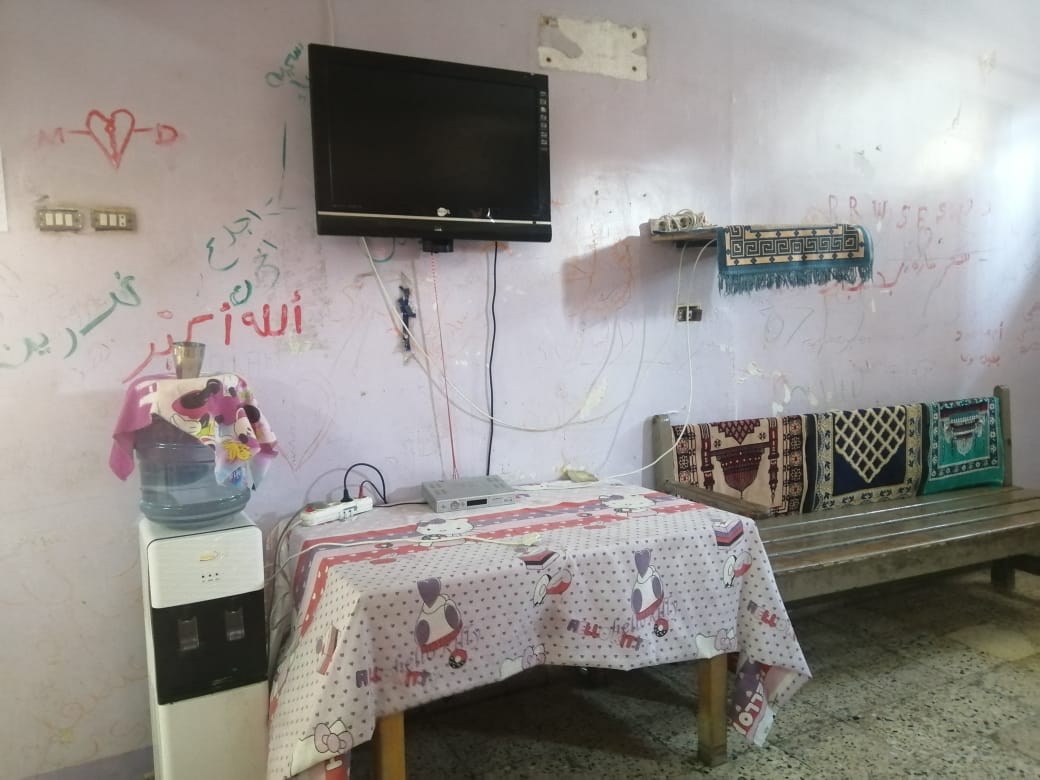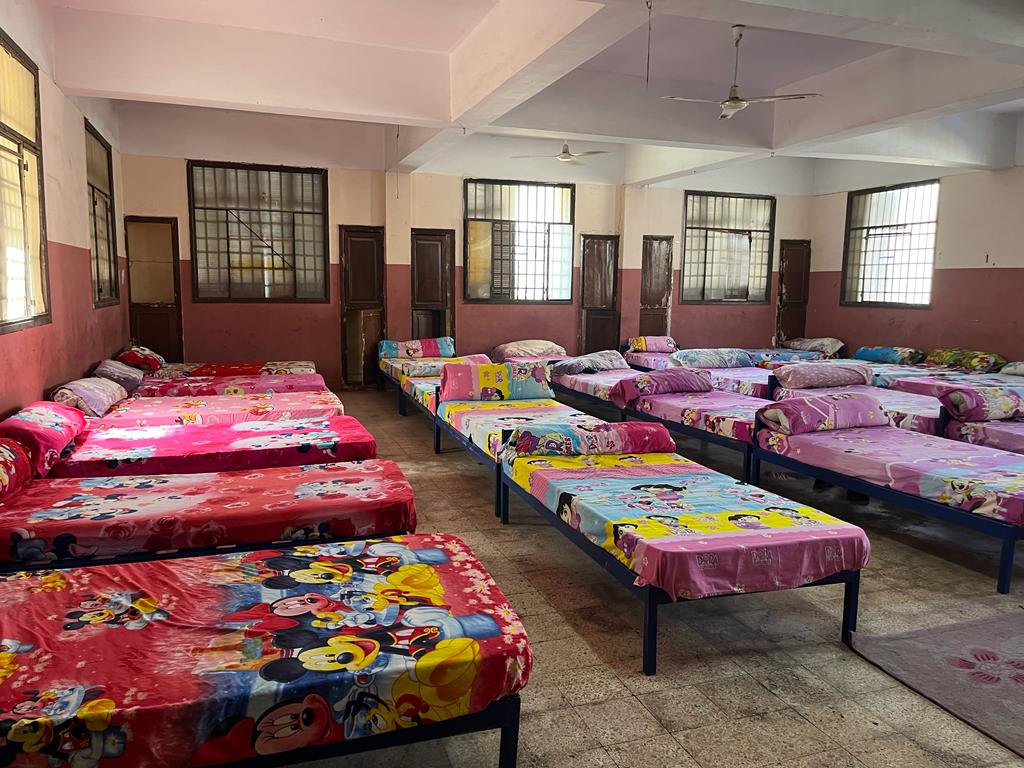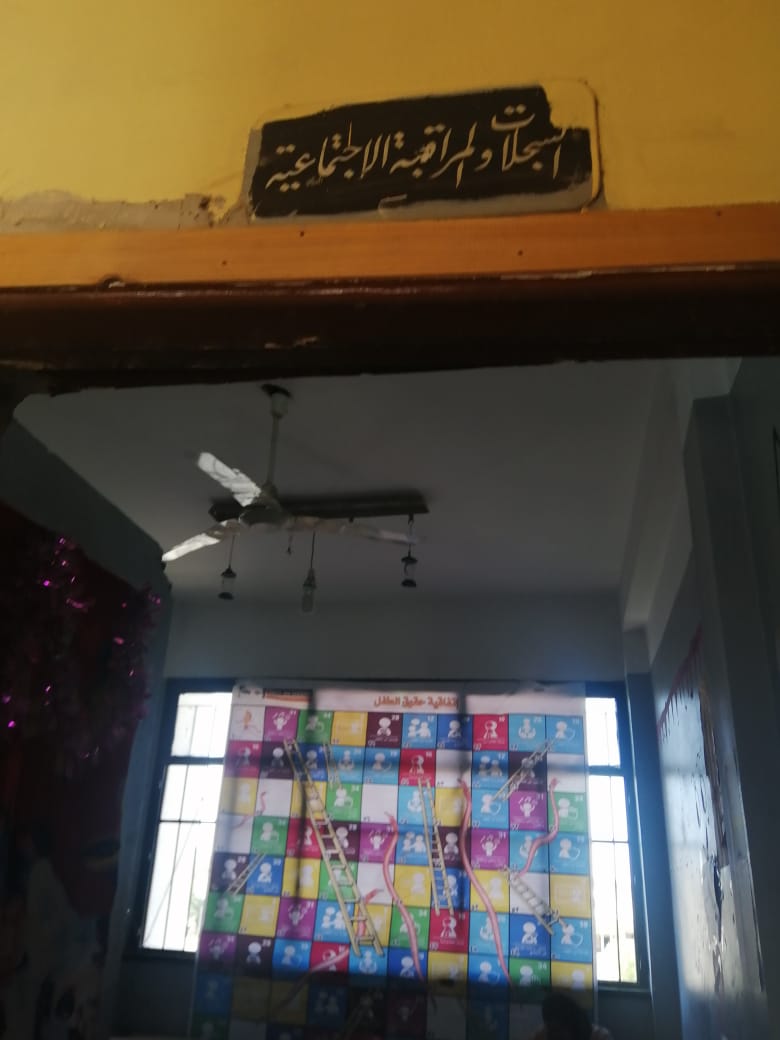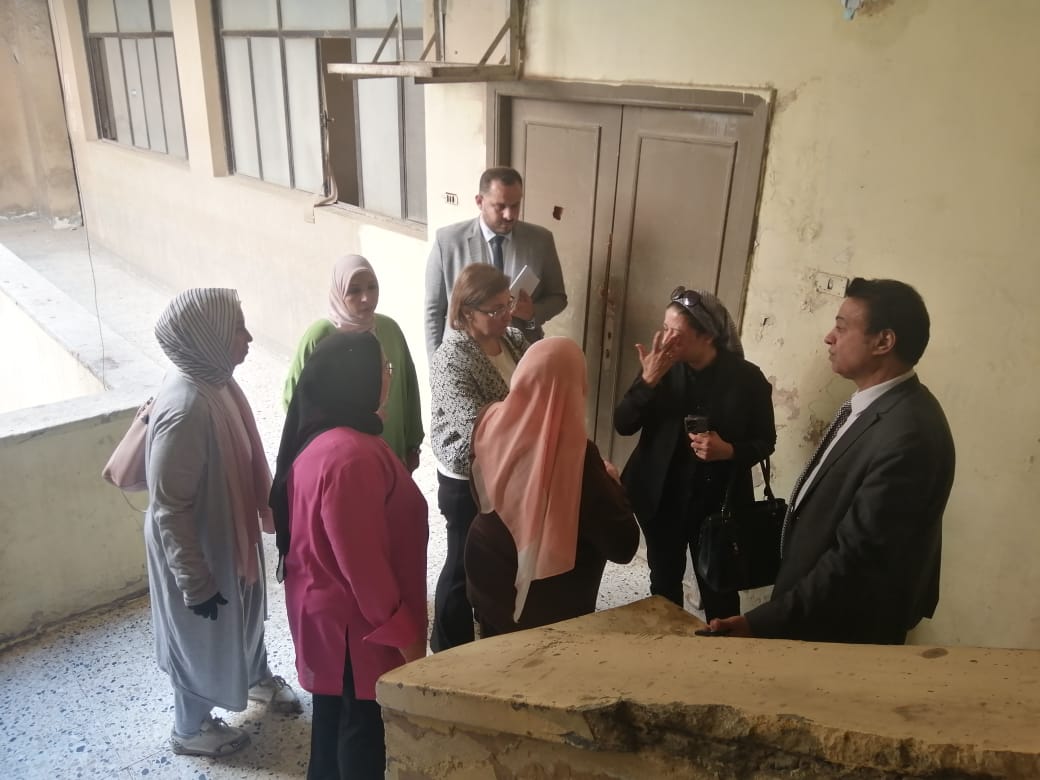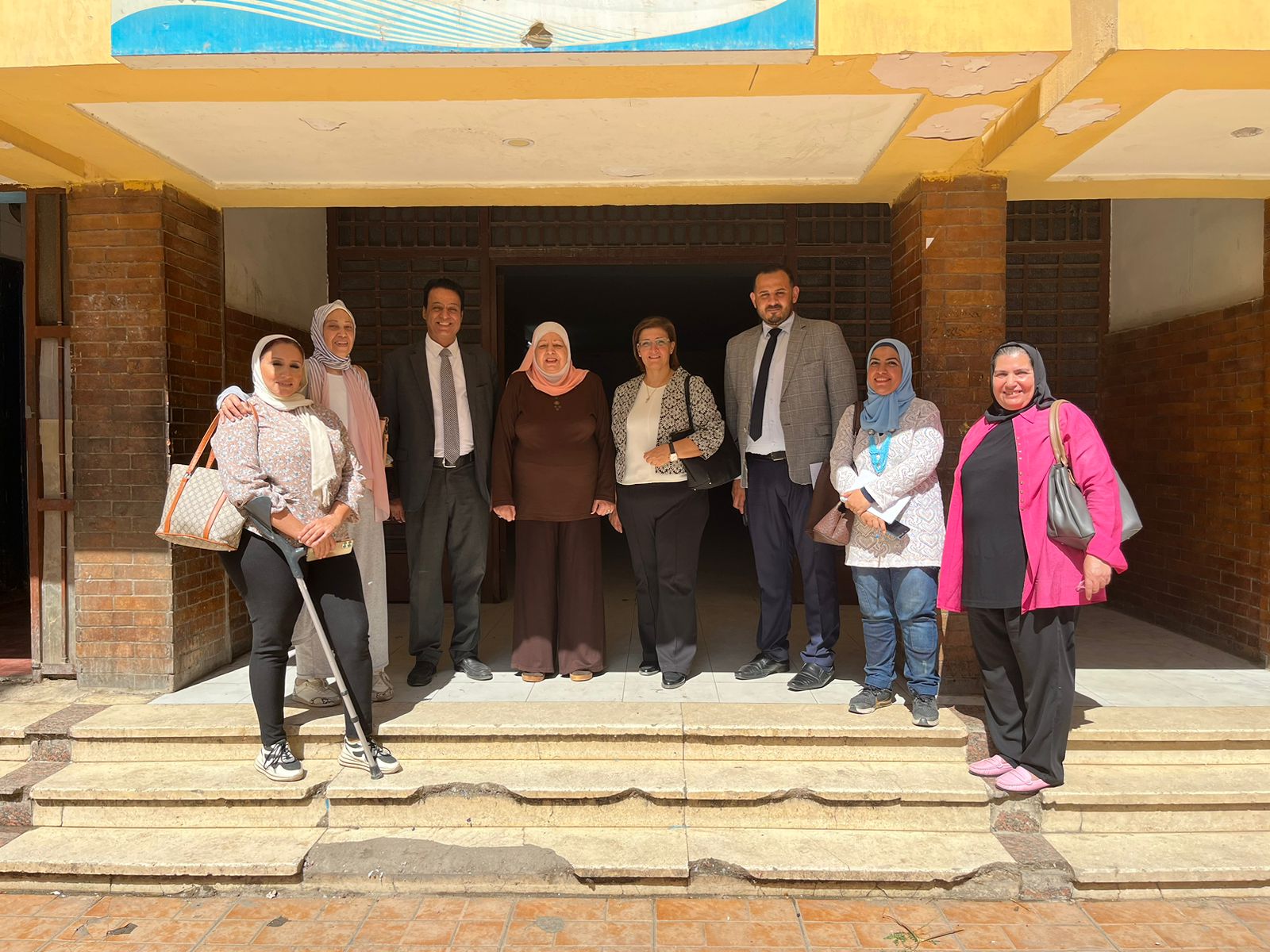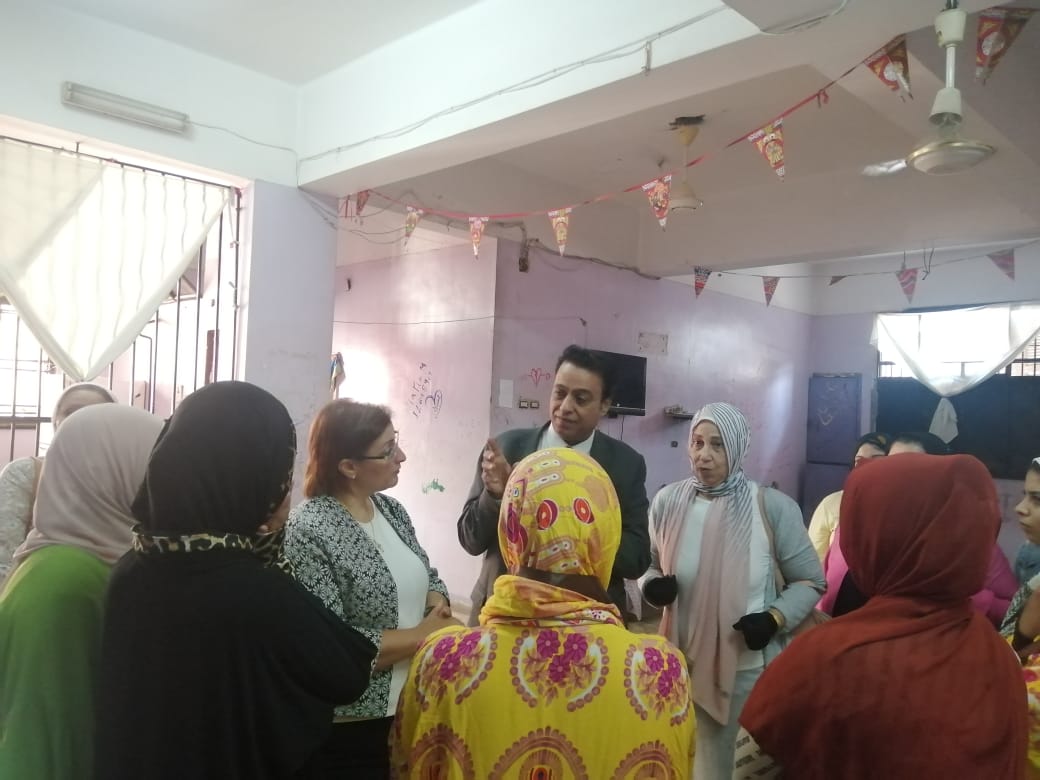The National Council for Human Rights conducts a field visit to educational institutions in Giza
In continuation of the National Council for Human Rights’ (NCHR) role in monitoring the conditions of the institutions affiliated with the Ministry of Social Solidarity, and in implementation of the work plan of the Social Rights Committee, the committee, on Monday, October 16, 2023, headed by Dr. Wafa Benjamin, Secretary of the Committee, made a field visit to educational institutions in Giza, with the participation of NCHR members, Ms. Rabha Fathi, Ms. Abdel-Gawad Ahmed, and representatives of the Technical Secretariat.
At the beginning of the visit, Ms. Wafaa Al-Mestakawi, Director of the Educational Homes in Giza, received the NCHR delegation in the presence of representatives of the General Administration of Social Defense. It was pointed out that the Educational Homes in Giza are considered one of the "social defense institutions", which aims to receive children at risk to protect them, modify their behavior, and guide them. "The Home" also receives children in conflict with the law and under probation. It was noted that the educational centers include several buildings, including a primary school, playgrounds, and vocational workshops, and currently include 150 children, with an estimated capacity for 800 children. It was noted that the rate of placing children in observation homes and social care institutions is 11%, and alternative measures are used for detention and placement, such as judicial probation, commitment to certain duties, vocational training, and relevant training, in accordance with the Children’s Law.
Through an inspection visit to the wards and buildings of education centers in Giza and talking to the children, the NCHR recommends the following:
· Expedite coordination with the Ministry of Education to enroll children in middle and secondary education and facilitate their access to textbooks.
· Providing the necessary legal assistance to children in conflict with the law in cooperation with the National Council for Childhood and Motherhood and relevant civil society organizations.
· Working to increase the number of social and psychological specialists in social care institutions and providing job degrees and coordinating with the Ministry of Health to appoint a resident doctor and a nursing specialist to provide health care for children. As well as coordination with the Ministry of Higher Education to assign and train recent graduates from psychology or sociology departments to work in this sector as an assignment period after graduation.
· Developing the infrastructure of care homes, especially with the presence of buildings, working to develop workshop activity and providing technicians in charge of training work, and working to develop and support marketing policies for care home products, in cooperation with the Production Efficiency Department of the Ministry of Trade and Industry.
· Facilitating obtaining housing and allocating a percentage for children residing in care homes after leaving those homes, in coordination with the Ministry of Housing.
· Coordinating with civil society organizations to provide activities and support for children, so that they can live in an environment suitable for their psychological and social development, and cooperating in this to gain the support of the private sector within the framework of social responsibility.
· Work with the media to eliminate the stigma that haunts children residing in care homes.
· Considering modernizing the care home sector for children in conflict with the law or homeless children as a priority for the Egyptian state to protect and promote children’s rights, and to raise community awareness of the importance of alternative measures such as judicial testing, commitment to certain duties, vocational training, and relevant training, in accordance with the Children’s Law.





 English
English
 Arabic
Arabic
 French
French
